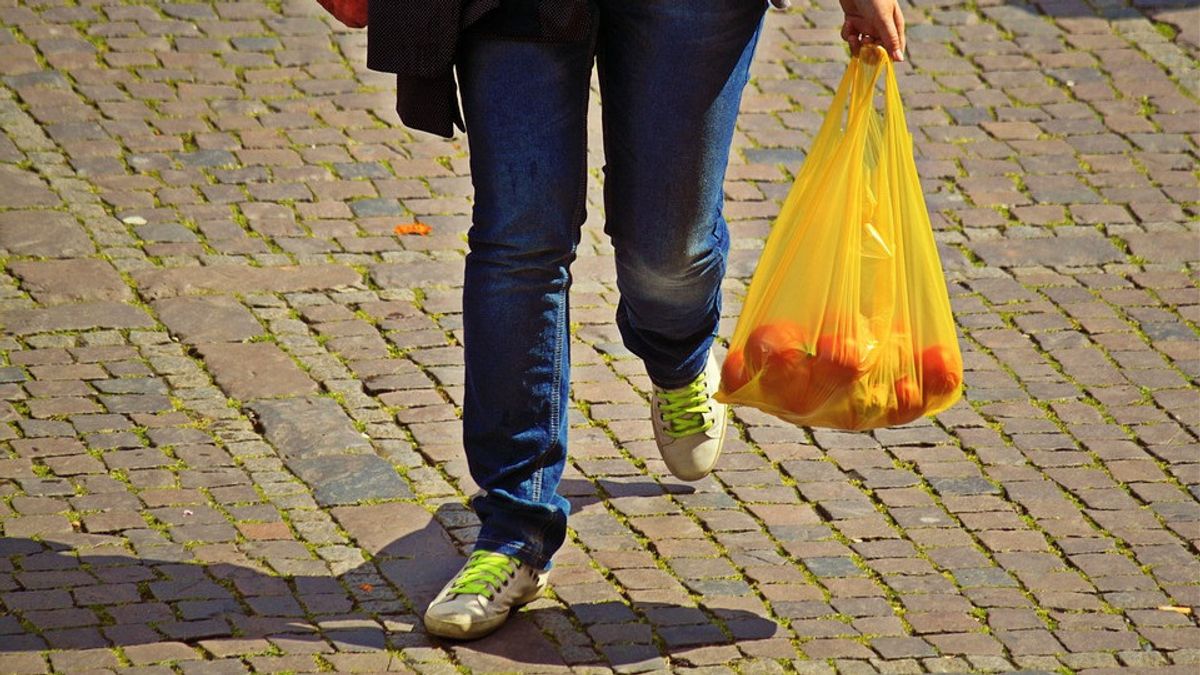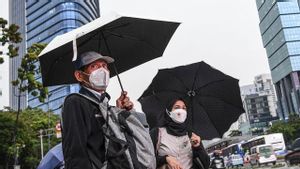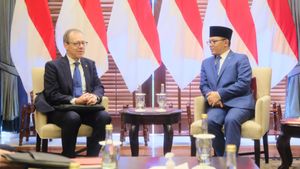JAKARTA - On July 1, the ban on the use of plastic bags in Jakarta will take effect. This is stated in Governor Regulation Number 142 of 2019 concerning the Obligation to Use Environmentally Friendly Shopping Bags which was signed in January.
Article 5 of the Pergub states that managers of shopping centers, supermarkets and public markets are required to use environmentally friendly shopping bags.
"The DKI Jakarta Provincial Government prohibits the use of single-use plastic shopping bags in these places," said Head of the DKI Jakarta Environment Agency Andono Warih, Wednesday, June 10.
To enforce this Pergub, shopping places are required to conduct socialization and education to consumers to reuse shopping bags.
Because eco-friendly shopping bags are more expensive than single-use plastic bags, the DKI Provincial Government allows shops to sell at a certain price.
"Entrepreneurs or tenants must provide environmentally friendly shopping bags for free," said Andono.
If business actors do not heed this regulation, they will be given sanctions ranging from written warnings, administrative fines, license suspension, to business license revocation.
Plastics issues and online shoppingThe problem during the mid-week of COVID-19 is that there is an increase in online shopping and delivery services. This happens because people are more active at home due to the implementation of Large-Scale Social Restrictions (PSBB).
The Center for Oceanographic Research and the Population Research Center of the Indonesian Institute of Sciences (LIPI) released the results of a study on the impact of PSBB and WFH on plastic waste in the Greater Jakarta area.
The survey was conducted online on April 20-May 5. As a result, the majority of Jabodetabek residents do online shopping which tends to increase. Previously, only 1-5 times a month, now it is 1-10 times during PSBB and Work For Home (WFH).
There is also an increase in the use of delivery services via online transportation. As many as 96 percent of packages are wrapped in thick plastic and added with bubble wrap.
Andono also acknowledges that there is an increase in the frequency of online shopping, both fast food delivery services and online shopping in packages. Of course, this has resulted in an increase in plastic waste for online shopping packages.
However, the rule of law has been created and must be enforced. "People are asked to reduce the generation of plastic waste by implementing the tips for environmentally friendly online shopping recommended by LIPI," said Andono.
Separately, Research Center for Oceanography Research at LIPI Intan Suci Nurhati explained several ways to reduce single-use plastics during the early days of COVID-19.
This method is to support sellers and products without plastic wrapping, ask sellers to reduce plastic packaging and buy goods in large packages or combine various grocery lists in one purchase.
In addition, said Intan, people can reuse plastic packaging after cleaning, sort plastic waste for recycling, buy goods from closer locations can help reduce greenhouse gas emissions.
"Let us work together to reduce plastic waste in online shopping," said Intan.
The English, Chinese, Japanese, Arabic, and French versions are automatically generated by the AI. So there may still be inaccuracies in translating, please always see Indonesian as our main language. (system supported by DigitalSiber.id)













